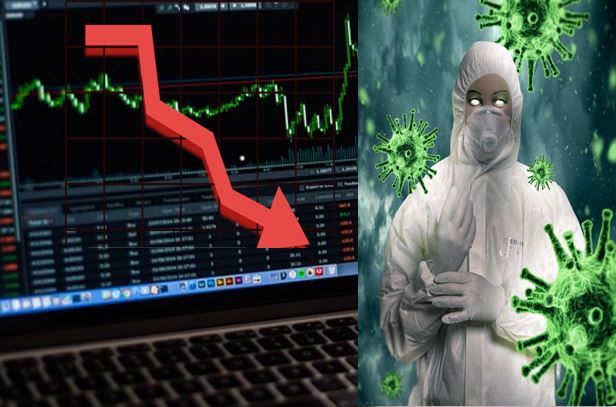Corona Virus and Its Impact on World Economy and Stock Markets

The first case of a new virus designated as a novel Coronavirus was observed in Hubei in China in December when a person reported Pneumonia-like symptoms. The rare novel Coronirus spread quickly because of its ability of a human to human transmission. Its been only a month ago when the first case was observed, the coronavirus has now affected around 10000 cases in China and more than 200 cases in 23 countries outside China including the USA, France, Germany, Malaysia, Indian among others.
As the Chinese economy unfolds its gigantic size and influence, the metaphor “If China sneezes, the whole world catches a cold” holds true amidst the coronavirus outbreak. When the 2002 SERS outbreak occurred in China. Its impact was lesser with China accounting for a relatively smaller part of the world economy. Currently, the Chinese economy is at the center of the world stage. Almost the whole of the world depends on China for manufacturing items. Hence, The tremors of this coronavirus shock outbreak would be felt in almost all areas of the world economy. Let’s see how the virus outbreaks have impacted trade and the world economy.
The economy of China which accounts for a large part of the global trade has already hit the lowest since the 1990s in December last year following the global trade war with the U.S. Now, the aghast outbreak has made the condition even worse. The economy is plunging into darkness as the Government struggled to control the deadly virus. China is one of the biggest exporters of low price electronics, Computers, Integrated chips among others. The country has metamorphosed itself into an important part of a global supply network manufacturing products needed by multinational giants like Qualcomm in the USA to Globetronics in Malaysia. Hence, obstruction of the global chain and supply chain network is bound to occur amidst this outbreak. Multinational companies like Apple, Starbucks have closed their stores impetuously and are facing abrupt shut out as clouds of uncertainty hovers over the virus post declaration of this deadly virus as Public Health Emergency of International Concern by WHO.
Investors are selling Chinese Yuan and pulling out their money from the Chinese economy as fear of viruses strangulates markets. Chinese markets are witnessing a big fall in share prices. Global markets are jolted by the epidemic. Financial markets are facing a downturn trend with Dow Jones industrial index and NASDAQ index under immense pressure. US markets are facing turmoil. Black Swan events like these can affect share(asset) prices. Interconnected between global markets and volatility in the global chain has made the condition highly vulnerable to ‘Black Swan”
China is one of the leading importers of oil. As the demand for oil dropped in China, prices of oil suffered a fallback. The oil sector is facing pressure and the market is glancing towards demand havoc. OPEC countries are witnessing losses in oil trade and the conditions may aggravate in the future if the virus control measures remain unknown. However, efforts are being made by OPEC countries to balance the prices
With a 1.4 billion population, China has grown into a huge consumer market. The burgeoning middle-class consumers have high disposable income. However, anxiety coupled with the fear of unpredictability forced Consumers to not step out of their homes, watch movies or go to markets. Consumer spending has dramatically decreased in China since last month, even after the much-revered festive lunar New Year. This has reduced China’s demand for imports, impacting the commodity market severely.
The tourism industry also suffers a major blow. Japan is the popular destination of Chinese people in Spring New Year but this year the industry experienced flatline. The USA, European countries, Malaysia where the cases of the virus were witnessed have blocked Chinese visitors. This has started depressing tourist avenues and billion-dollar tourism will see a major hit if the conditions are not controlled soon
The contagion effect for the global economy is going to be larger this time if we compare it to SARS 2002 epidemic. As an element of uncertainty is attached to the novel virus, the virus will continue to claim lives, hit across continents. Nobody seems to know for how much time the epidemic, soon to turn into pandemic will last and how much lives it will claim or the extent of its spread across multiple continents. As Globalisation acquired gargantuan shape, ripples in one corner of the world have the potential to amplify and create systemic risks in another part of the world, known as the Butterfly effect. Hence, It is time for countries to not panic, rather create cohort understanding amongst each other under the guidance of WHO to stop this lethal epidemic. One of the best ways to stop its spread is by raising public awareness.
Published on 12-02-2020
Like Our Page To Get Blogs & Market Updates



